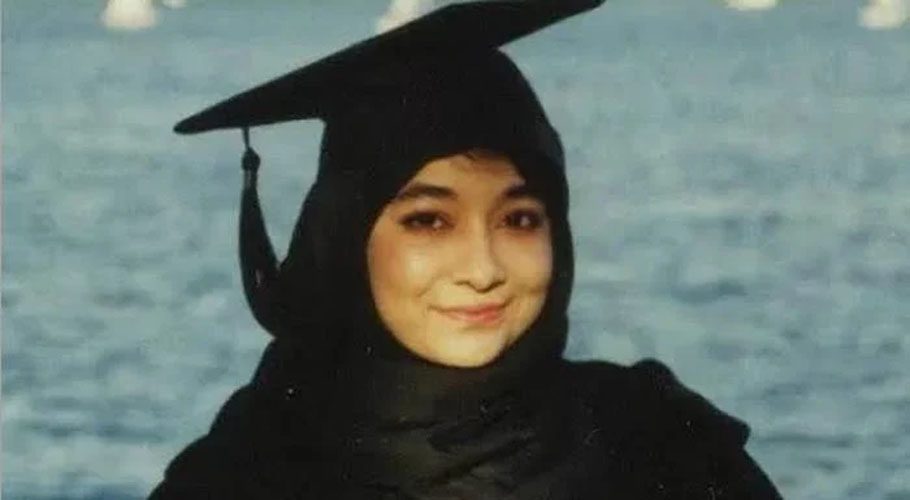A clemency petition seeking the release of Dr. Aafia Siddiqui, a Pakistani neuroscientist serving an 86-year sentence in the United States, has been submitted to the White House, with advocates urging President Joe Biden to consider her release before the conclusion of his term on January 20, 2024.
The petition was part of a diplomatic push by a Pakistani delegation, led by Senator Bushra Anjum Butt, who recently traveled to the U.S. to advocate for Siddiqui’s release on humanitarian grounds. The delegation also included Senator Talha Mehmood and psychiatrist Dr. Iqbal Afridi, responding to a directive from the Islamabad High Court to engage with U.S. lawmakers and officials on Siddiqui’s case.
During their visit, the delegation met with key U.S. lawmakers, including Congressman Jim McGovern, Congresswoman Ilhan Omar, and Senator Chris Van Hollen. They also held talks with Elizabeth Horst, the principal deputy assistant secretary of state for South and Central Asia, to discuss legal avenues and emphasize the urgency of the clemency request.
The clemency petition has already been delivered to the White House, with one community member expressing hope that President Biden will act before the transition to the new administration. The delegation also visited Dr. Siddiqui at the Federal Medical Centre, Carswell, in Fort Worth, Texas, where she is incarcerated. The visit lasted three hours, focusing on her health and circumstances.
Senator Talha Mehmood described the meeting as “encouraging,” expressing optimism that Siddiqui’s case would be prioritized among the over 60 pardon requests on President Biden’s desk. He appealed to the president to consider Siddiqui’s situation with compassion.
The Islamic Circle of North America (ICNA), a U.S.-based organization, expressed support for the delegation’s efforts. Following a meeting with Senator Van Hollen, Senator Butt referred to the visit as part of a “sustained diplomatic effort” led by Prime Minister Shahbaz Sharif, who had earlier urged President Biden to grant clemency for Siddiqui due to her declining health.
Dr. Siddiqui, born in Karachi, moved to the U.S. in 1990 on a student visa and later earned a doctorate in neuroscience. She was convicted in 2010 on terrorism-related charges following a controversial trial, which sparked protests in Pakistan, where many view her as a symbol of resistance against injustice.
Michael Kugelman, director of the South Asia Institute at the Woodrow Wilson Center, suggested that the incoming Trump administration could face pressure from supporters of Imran Khan to negotiate a deal for Siddiqui’s release.


































